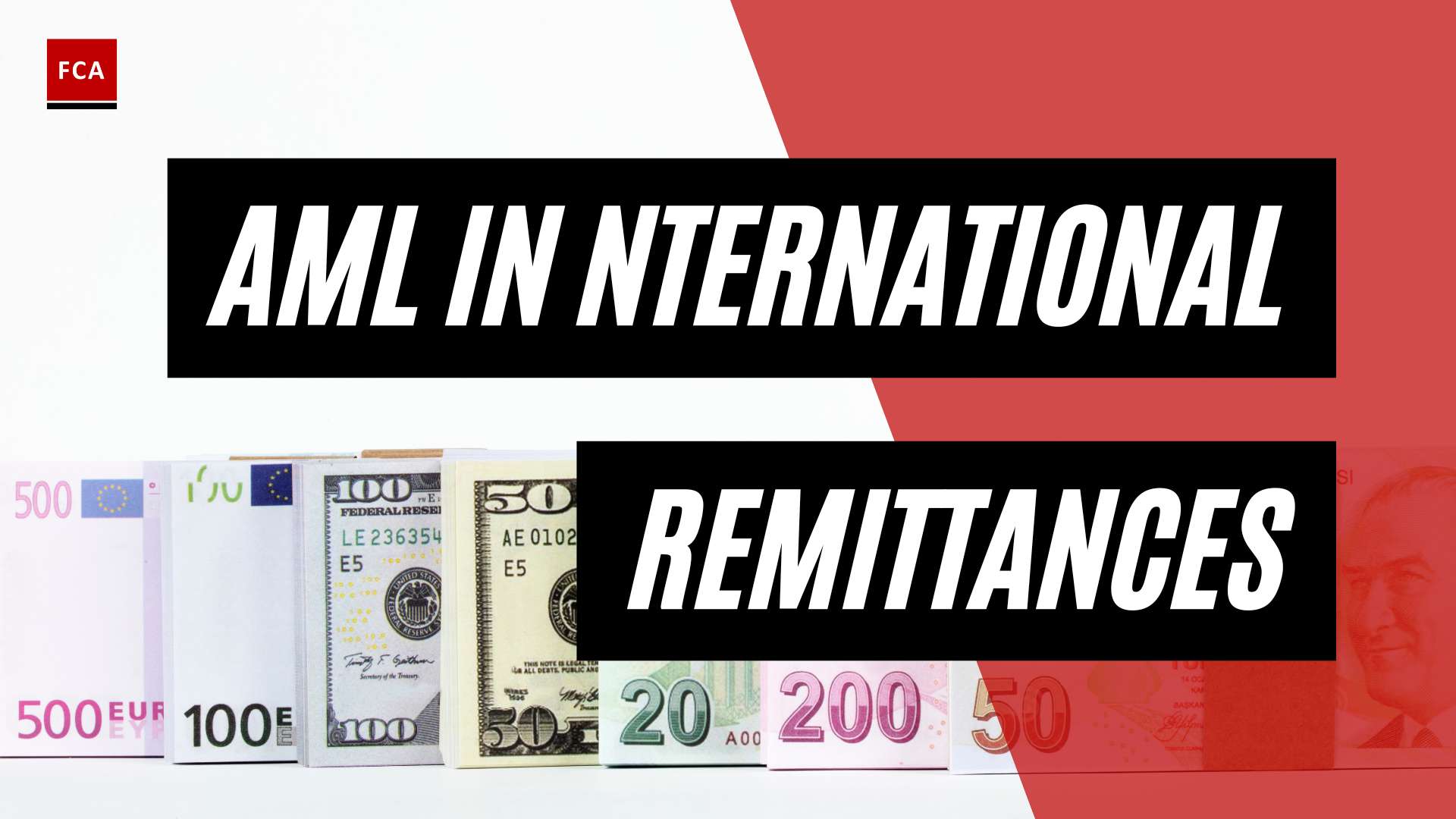AML Compliance in Emerging Markets
In the ever-evolving landscape of anti-money laundering (AML) compliance, emerging markets present unique challenges that require careful attention and understanding. AML compliance is of paramount importance in these markets as they face their own set of risks and vulnerabilities. This section will delve into the importance of AML compliance in emerging markets and shed light on the unique challenges that organizations face in ensuring effective compliance.
Importance of AML Compliance in Emerging Markets
AML compliance in emerging markets carries significant importance due to several reasons. First and foremost, emerging markets often attract illicit financial activities due to factors such as less stringent regulations, weaker institutional frameworks, and higher levels of corruption. This makes it crucial for organizations to implement robust AML measures to prevent money laundering and the financing of terrorism.
Moreover, emerging markets are increasingly becoming integral players in the global economy, attracting foreign investments and participating in international trade. To foster trust and maintain their reputation, these markets must demonstrate strong commitment to AML compliance. Failure to do so can result in reputational damage, the loss of investor confidence, and potential sanctions.
By adhering to AML compliance regulations, emerging markets can bolster their financial systems, enhance transparency, and deter illicit activities. This, in turn, promotes economic growth, attracts foreign investment, and fosters stability in the financial sector.
Unique Challenges in AML Compliance for Emerging Markets
While the importance of AML compliance in emerging markets is evident, organizations operating in these markets face distinct challenges. These challenges arise from factors such as the regulatory landscape, cultural and socio-economic considerations, technological limitations, and the need for robust risk assessment and due diligence practices.
The regulatory landscape in emerging markets can be complex and fragmented. AML regulations may vary across jurisdictions, making it challenging for organizations to navigate the diverse compliance requirements. Understanding the AML regulations in emerging markets is crucial for organizations to develop tailored compliance programs that meet local regulatory expectations.
Cultural factors and socio-economic challenges also play a significant role in AML compliance. Differences in cultural norms, practices, and attitudes towards financial transactions can impact compliance efforts. Additionally, socio-economic factors, such as poverty, political instability, and weak governance, can pose challenges in implementing effective AML measures.
Technological and infrastructural limitations further compound the challenges. Emerging markets may have limited access to advanced technology and infrastructure, hindering the adoption of sophisticated AML tools and systems. This necessitates innovative approaches to overcome these constraints and ensure compliance in resource-constrained environments.
Risk assessment and due diligence are crucial components of effective AML compliance. However, assessing risks in emerging markets can be complex due to the dynamic nature of these economies and the evolving typologies of money laundering and terrorist financing. Organizations must develop robust risk assessment frameworks and implement thorough due diligence processes to identify and mitigate AML risks effectively.
Addressing these unique challenges requires organizations to develop tailored AML compliance programs that consider the local context, collaborate with relevant stakeholders, and leverage technology to overcome infrastructural limitations. By implementing best practices for AML compliance in emerging markets, organizations can navigate the complexities and effectively tackle the frontier of AML compliance in these markets.
Regulatory Landscape in Emerging Markets
When it comes to anti-money laundering (AML) compliance, emerging markets present their own unique challenges. Understanding the regulatory landscape in these markets is crucial for organizations operating in these regions. This section provides an overview of AML regulations in emerging markets and highlights the variations and differences in regulatory frameworks.
Overview of AML Regulations in Emerging Markets
Emerging markets have recognized the importance of AML compliance in combating financial crimes and protecting their financial systems. As a result, they have implemented AML regulations to ensure the integrity of their economies. These regulations are designed to identify and prevent money laundering and the financing of terrorism.
While specific regulations may vary across different emerging markets, the overall objectives remain consistent. Regulatory bodies in these markets strive to establish robust AML frameworks that align with international standards and best practices. These frameworks typically include requirements related to customer due diligence, record-keeping, suspicious transaction reporting, and internal controls.
To comply with AML regulations in emerging markets, organizations must understand and adhere to the specific requirements set forth by the regulatory authorities in each jurisdiction they operate in. This involves staying updated on any changes or amendments to the regulations and implementing effective AML programs that address the unique challenges of these markets.
Variations and Differences in Regulatory Frameworks
One of the key challenges in AML compliance for emerging markets is the variations and differences in regulatory frameworks. Each jurisdiction may have its own set of rules and regulations, making it essential for organizations to adapt their compliance programs accordingly.
These variations can include differences in regulatory approach, reporting thresholds, risk assessment methodologies, and penalties for non-compliance. For example, some emerging markets may have stricter reporting requirements, while others may focus more on risk-based approaches. By understanding these differences, organizations can develop tailored compliance strategies that meet the specific requirements of each jurisdiction.
It is also important to note that emerging markets may face challenges in implementing and enforcing AML regulations due to limited resources, capacity constraints, and evolving regulatory landscapes. Organizations operating in these markets must navigate these complexities and ensure they have robust compliance programs in place.
By being aware of the regulatory landscape and understanding the variations and differences in regulatory frameworks, organizations can effectively navigate the AML compliance landscape in emerging markets. This knowledge enables them to design and implement compliance programs that align with local regulations and mitigate the inherent risks associated with operating in these dynamic environments. For more information on AML compliance in emerging markets, refer to our article on aml compliance in emerging markets.
Cultural and Socio-Economic Factors
When it comes to Anti-Money Laundering (AML) compliance in emerging markets, cultural and socio-economic factors play a significant role in shaping the challenges faced by financial institutions and regulatory bodies. Understanding these factors is crucial for effectively implementing AML measures and addressing compliance risks in these unique environments.
Cultural Factors Impacting AML Compliance
Cultural factors can greatly influence the effectiveness of AML compliance efforts in emerging markets. Cultural norms and practices may differ across regions, impacting the perception of financial crimes and the willingness to report suspicious activities. Some cultural factors that can impact AML compliance include:
-
Trust and Informal Financial Systems: In certain emerging markets, there may be a prevalent use of informal financial systems that rely on trust and personal relationships. These systems can make it challenging to monitor and regulate financial transactions, increasing the risk of money laundering and illicit activities.
-
Perception of Privacy and Confidentiality: Cultural norms surrounding privacy and confidentiality may discourage individuals from reporting suspicious activities or sharing information with authorities. This can hinder the effectiveness of AML efforts, as reporting and cooperation are essential for detecting and preventing money laundering.
-
Corruption and Bribery: In some regions, corruption and bribery may be deeply rooted in the culture. This can create an environment where illicit funds can flow more freely, making it difficult to detect and prevent money laundering. It also undermines trust in regulatory systems and hampers the effectiveness of AML compliance measures.
Socio-Economic Challenges in Implementing AML Measures
Socio-economic factors also present challenges in implementing AML measures in emerging markets. These challenges may arise due to limited resources, economic disparities, and the overall development of the financial sector. Some socio-economic challenges include:
-
Financial Inclusion and Access to Banking Services: In emerging markets, there may be a significant portion of the population that remains unbanked or underbanked. This lack of access to formal banking services can lead individuals to rely on alternative financial systems, which are more susceptible to money laundering activities.
-
Low Financial Literacy: Limited financial literacy can hinder individuals’ understanding of their obligations in reporting suspicious activities or complying with AML regulations. Financial institutions and regulatory bodies must invest in education and awareness programs to enhance understanding and compliance.
-
Economic Instability and Poverty: Economic instability and poverty can create an environment where individuals may be more susceptible to engaging in money laundering activities as a means of survival. Addressing the root causes of poverty and promoting economic stability can contribute to reducing money laundering risks.
Understanding cultural and socio-economic factors is essential in tailoring AML compliance measures to the local context of emerging markets. By acknowledging and addressing these challenges, financial institutions and regulatory bodies can develop more effective strategies and guidelines to combat money laundering. For more information on AML compliance in emerging markets, refer to our article on AML compliance in emerging markets.
Technological and Infrastructural Limitations
When it comes to Anti-Money Laundering (AML) compliance in emerging markets, technological and infrastructural limitations pose significant challenges. These limitations can hinder the effective implementation of AML measures and increase the vulnerability to money laundering and illicit financial activities. In this section, we will explore the technology constraints and infrastructural challenges faced in AML compliance within emerging markets.
Technology Constraints in Emerging Markets
Emerging markets often face limitations in terms of technological advancements and infrastructure. These constraints can impact the effectiveness of AML compliance efforts. Some common technology constraints include:
-
Limited Access to Technology: In certain regions, access to advanced technology, such as robust IT systems and software solutions, may be limited. This can hamper the ability of financial institutions and regulatory bodies to implement sophisticated AML systems and controls.
-
Outdated Systems: Outdated legacy systems in emerging markets can pose challenges in terms of data management, monitoring, and reporting. These systems may lack the necessary functionalities to effectively identify and mitigate money laundering risks.
-
Cybersecurity Risks: Emerging markets may face increased cybersecurity risks due to inadequate IT infrastructure and cybersecurity measures. Weak cybersecurity systems can make financial institutions and regulatory bodies more susceptible to data breaches and cyber attacks, compromising the integrity of AML systems.
-
Data Quality and Standardization: In some emerging markets, the quality and standardization of data may be inconsistent. This can make it difficult to aggregate and analyze data effectively, hindering the identification of suspicious transactions and activities.
Infrastructural Challenges for AML Compliance
The infrastructural challenges faced in emerging markets further complicate AML compliance efforts. These challenges can include:
-
Limited Access to Banking and Financial Services: In certain regions, access to formal banking and financial services may be limited, leading to a significant portion of financial transactions occurring outside the regulated system. This can create opportunities for money laundering and make it challenging for regulatory bodies to monitor and detect suspicious activities.
-
Inadequate Regulatory Frameworks and Enforcement: Emerging markets may have less comprehensive AML regulatory frameworks and enforcement mechanisms compared to more developed economies. This can result in weaker oversight and supervision, making it easier for illicit funds to flow through the financial system.
-
Lack of Trained AML Professionals: The shortage of trained AML professionals in emerging markets can impede the implementation and execution of effective AML compliance programs. Without a skilled workforce, it becomes challenging to develop and maintain robust AML controls and procedures.
-
Insufficient Coordination and Collaboration: Limited coordination and collaboration among different stakeholders, such as financial institutions, regulatory bodies, and law enforcement agencies, can hinder the sharing of vital information and intelligence. This lack of collaboration can undermine the effectiveness of AML efforts in identifying and combating money laundering activities.
Despite these challenges, emerging markets are taking steps to address technological and infrastructural limitations. Governments and regulatory bodies are working towards improving technology infrastructure, enhancing cybersecurity measures, and strengthening AML regulations. By investing in technology upgrades, fostering international cooperation, and promoting capacity-building initiatives, emerging markets can enhance their AML compliance frameworks and mitigate the risks associated with money laundering and illicit financial flows.
Risk Assessment and Due Diligence
In the realm of anti-money laundering (AML) compliance, conducting thorough risk assessments and due diligence is of paramount importance, particularly in emerging markets. These markets often present unique challenges that require careful consideration and tailored approaches to ensure effective compliance measures. In this section, we will explore the process of assessing risks in emerging markets and the significance of conducting due diligence in challenging environments.
Assessing Risks in Emerging Markets
When operating in emerging markets, it is crucial for organizations to assess the specific AML risks associated with these regions. The risk landscape can vary significantly due to factors such as political instability, weak governance, high levels of corruption, and porous borders. By conducting a comprehensive risk assessment, organizations can identify and prioritize the risks they are exposed to, allowing them to allocate resources effectively and implement appropriate controls.
To assess risks in emerging markets, organizations should consider multiple factors, including:
-
Country-Specific Risks: Each emerging market may have its own unique risks and vulnerabilities. These can include inadequate regulatory frameworks, limited resources for enforcement, and a lack of awareness and understanding of AML issues.
-
Sector-Specific Risks: Different sectors within emerging markets may have varying levels of exposure to money laundering and terrorist financing risks. Organizations need to consider the specific risks associated with their industry and tailor their compliance efforts accordingly.
-
Customer Risks: Understanding the customer base is crucial in assessing AML risks. Organizations should analyze customer profiles, transaction patterns, and the level of transparency in financial dealings to identify potential red flags.
-
Geographical Risks: Emerging markets often encompass vast territories with diverse regions. Assessing geographical risks involves considering factors such as cross-border transactions, proximity to high-risk jurisdictions, and the prevalence of informal or cash-based economies.
By conducting a thorough risk assessment, organizations can develop risk mitigation strategies and implement appropriate controls to address the identified risks.
Conducting Due Diligence in Challenging Environments
Due diligence is a critical component of AML compliance in emerging markets. It involves the process of gathering and verifying information about customers, business partners, and third parties to assess their integrity and potential AML risks. In challenging environments, conducting due diligence becomes even more crucial as the risks can be heightened.
When conducting due diligence in emerging markets, organizations should consider the following:
-
Know Your Customer (KYC) Procedures: Robust KYC procedures are essential to verify the identity of customers and assess their risk profile. This includes obtaining relevant identification documents, verifying the source of funds, and understanding the purpose of the business relationship.
-
Enhanced Due Diligence (EDD): In situations where higher risks are identified, such as dealing with politically exposed persons (PEPs) or high-risk countries, organizations must implement enhanced due diligence measures. This may involve conducting additional background checks, scrutinizing complex ownership structures, and monitoring transactions more closely.
-
Third-Party Due Diligence: When engaging with business partners or intermediaries in emerging markets, organizations should conduct thorough due diligence on these entities. This includes understanding their ownership, reputation, and compliance with AML regulations. Regular monitoring and periodic reviews are also crucial to ensure ongoing compliance.
-
Information Sharing: Collaboration and information sharing with industry peers, regulatory authorities, and law enforcement agencies can be instrumental in mitigating AML risks. By sharing insights and intelligence, organizations can collectively combat money laundering and terrorist financing activities.
By implementing robust risk assessment processes and conducting due diligence tailored to the unique challenges of emerging markets, organizations can enhance their AML compliance efforts and mitigate potential risks. It is essential to stay up to date with the ever-evolving AML landscape and adapt compliance measures accordingly to ensure effective risk management.
Best Practices for AML Compliance in Emerging Markets
In order to effectively tackle the unique challenges posed by Anti-Money Laundering (AML) compliance in emerging markets, it is crucial to adopt best practices that are tailored to the local context. This section will explore two key best practices: tailoring compliance programs to the local context and promoting collaboration and information sharing initiatives.
Tailoring Compliance Programs to Local Context
One of the most important aspects of AML compliance in emerging markets is the need to tailor compliance programs to the local context. Regulations and requirements can vary significantly across different jurisdictions, and it is essential to understand and comply with the specific AML regulations in each market. This includes understanding the local legal framework, regulatory expectations, and industry-specific guidelines.
To effectively tailor compliance programs, organizations should consider the following:
-
Localization of policies and procedures: Organizations should customize their AML policies and procedures to align with the legal and regulatory requirements of the specific jurisdiction. This ensures that compliance measures are relevant and applicable to the local context.
-
Localization of risk assessments: Conducting comprehensive risk assessments specific to each emerging market enables organizations to identify and prioritize the unique risks associated with those jurisdictions. This allows for the development of targeted risk mitigation strategies and controls.
-
Training and awareness programs: It is crucial to provide training and awareness programs that focus on the local AML regulations, typologies, and red flags relevant to the specific emerging market. This helps to ensure that employees understand the risks and obligations they face when operating in these markets.
Collaboration and Information Sharing Initiatives
Collaboration and information sharing initiatives play a vital role in enhancing AML compliance efforts in emerging markets. These initiatives foster cooperation among relevant stakeholders and promote the exchange of information and best practices. By working together, organizations, regulatory bodies, and industry associations can effectively address the challenges associated with AML compliance in emerging markets.
Here are some key aspects of collaboration and information sharing initiatives:
-
Public-private partnerships: Establishing partnerships between government agencies, financial institutions, and other relevant stakeholders can facilitate the sharing of resources, intelligence, and expertise. These partnerships can help identify emerging trends and typologies, enhance detection capabilities, and improve overall AML compliance efforts.
-
Industry forums and working groups: Participation in industry forums and working groups provides an opportunity to collaborate with peers, share insights, and collectively address common challenges. These forums facilitate the exchange of best practices, lessons learned, and emerging trends specific to AML compliance in emerging markets.
-
Engagement with regulators: Actively engaging with regulatory bodies and participating in relevant consultations and discussions can help organizations stay abreast of regulatory changes and expectations. This engagement allows organizations to provide feedback, share industry insights, and contribute to the development of effective AML regulations and guidelines.
By tailoring compliance programs to the local context and promoting collaboration and information sharing initiatives, organizations can navigate the unique challenges of AML compliance in emerging markets more effectively. These best practices help ensure that compliance efforts are aligned with local regulations, industry standards, and the evolving AML landscape in each jurisdiction.








